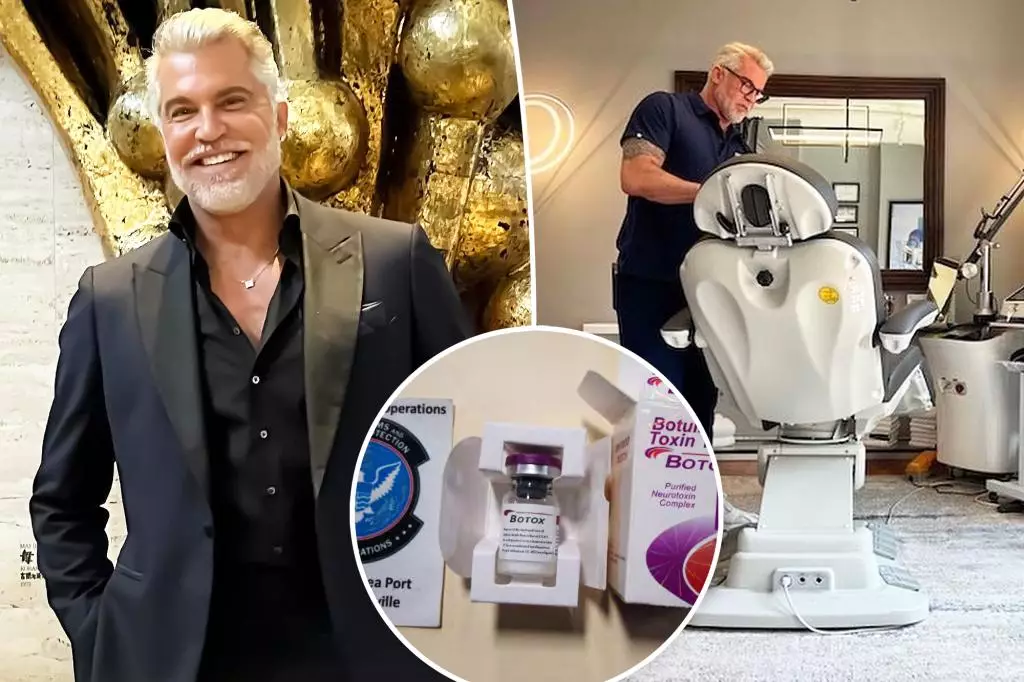In a shocking turn of events, the aesthetic community has been rocked by the arrest of Joey Grant Luther, an aesthetician accused of administering counterfeit Botox. The implications of this case reach beyond individual victim stories, exposing serious flaws and gaps within the beauty and healthcare industries that typically prioritize the appearance of safety and expertise.
Luther’s alleged actions leave many questioning the authenticity of their regular cosmetic procedures. The details outlined in court documents paint a wretched picture, revealing that numerous clients suffered from alarming symptoms, including difficulty swallowing, heart palpitations, and slurred speech. No one would suspect a charming practitioner in the aesthetic industry could be engaged in such illicit activities. Yet, the unfortunate reality is that consumers often place their trust in practitioners without adequately verifying their qualifications.
This incident has brought to light a fundamental issue in the world of aesthetic treatments: how well do clients know the backgrounds of the people providing these services? As one former client recounted their experience—resulting in double vision and an expensive pursuit of answers through multiple scans—it’s clear that trust can be misplaced in such settings. Clients often prioritize cost over credentials, attracting people like Luther, who offered “affordable” services compared to more established and licensed professionals, according to those who frequented his practice.
Luther’s competitive pricing attracted a significant portion of his clientele. The perception that something as integral as Botox could be purchased at a discount presents a troubling insight into consumer behavior. The desire for beauty can blind individuals to the ramifications of engaging with unauthorized practitioners, as illustrated by Luther’s ability to cultivate a loyal customer base despite lacking legal authority to administer Botox treatments.
Comments from former clients highlight that while Luther seemed charming and engaging, they were left reeling from how quickly their trust was misappropriated. The stark contrast between affordable cosmetic enhancements and the essential checks-and-balances found in regulated medical practices leads to one deadly conclusion: good intentions do not equate to safe procedures. Cutting corners for beauty may ultimately come with dire consequences.
One particularly fascinating aspect of this case is its resonance within the LGBTQ+ community, which reportedly made up a significant portion of Luther’s clientele. Many have expressed feelings of betrayal, further complicating the cultural dynamic surrounding beauty and body image cultivation within this tight-knit group. The trust placed in an individual hailed as charming and professional has eroded, leaving a rift in community faith.
Industry professionals are speaking out against the dangers of unregulated practice, urging those in the aesthetic field to protect consumers more fiercely. Bold statements about the need for proper licenses and accountability echo throughout the industry, highlighting the reliance on regulatory systems designed to protect public safety.
In the wake of Luther’s arrest, the legal ramifications are bound to spark debates about the enforceability of laws regulating the aesthetics industry. Luther faces an assortment of charges, including wire fraud and smuggling; if convicted, he could potentially face a 20-year sentence. This legal action serves as a reminder that negligence—whether it stems from lack of knowledge or deliberate deception—may lead to severe consequences.
Prosecutors are pushing for stringent measures against practitioners who misrepresent their qualifications, raising the stakes for aesthetic practitioners found to exploit loopholes within the law. Public awareness around these issues is paramount; as more people engage in cosmetic procedures, the industry must prioritize safety and practice accountability.
The troubling case of Joey Grant Luther serves as a wake-up call for consumers and practitioners alike. The intersection of beauty and healthcare must not be taken lightly; the potential for harm looms large when practitioners operate outside their scope. Clients must exercise diligence in selecting qualified providers, while the industry must tighten regulations to ensure consumer safety. Moving forward, the aesthetic world must place a greater emphasis on transparency and reassurance to rebuild trust shattered by cases such as Luther’s. Only then can the beauty industry aspire to truly serve and protect those who seek its services.

